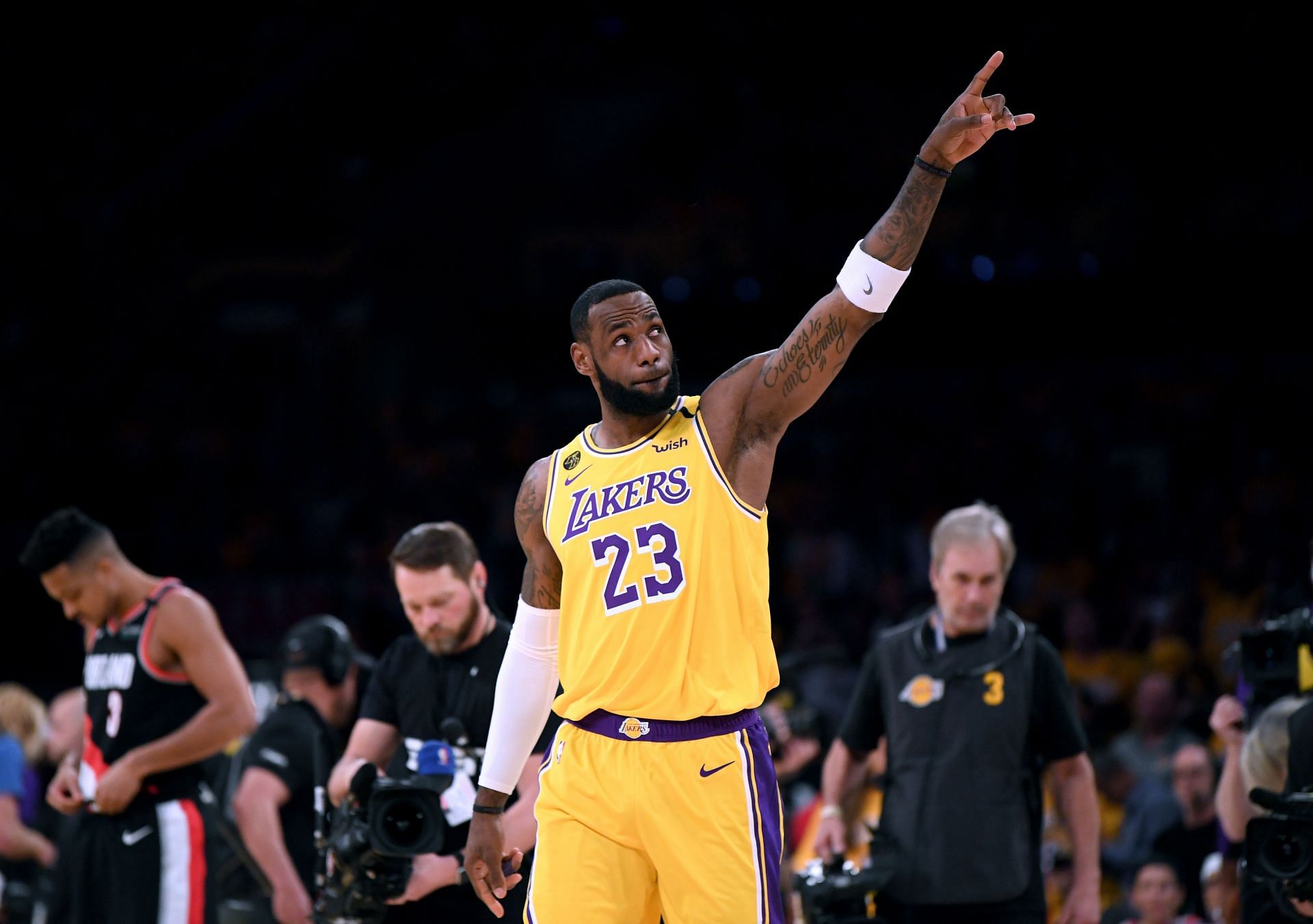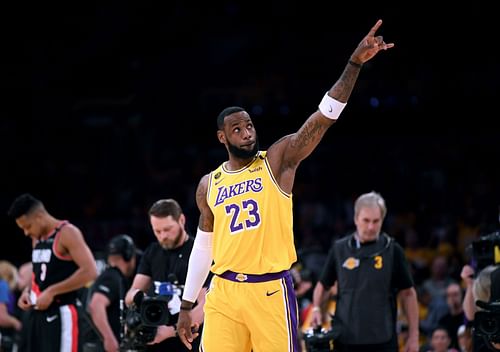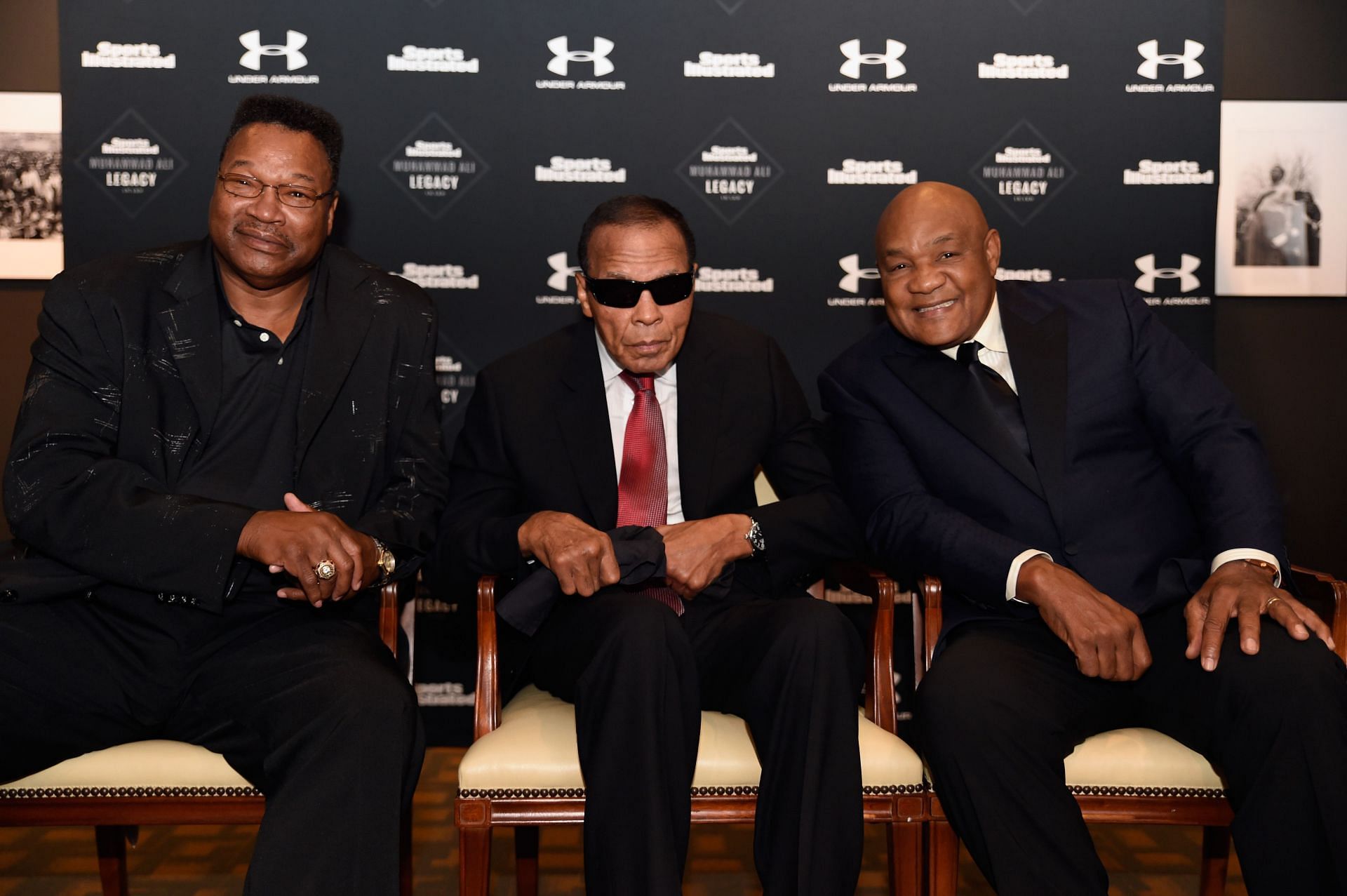
“He was the first icon. He is the GOAT" – Remembering LeBron James' iconic comments about Muhammad Ali on the legendary boxer's birth anniversary

Monday marks the birthday of the late Muhammad Ali, who was one of the most legendary athletes and continues to have an impact on the world.
One of the most influential personalities in the NBA today is LA Lakers forward LeBron James, who uses his platform to bring awareness to important world issues.
Not only was Ali one of the most legendary boxers to step inside the ring, but his impact outside the ring was second to none. Ali was a superstar who spoke on important issues. He was never afraid to speak his mind, even if it went against the "consensus" belief around the world. James spoke about how impactful Ali, who died in June 2016, was for future generations.
“He was the first icon," James said. "He is the GOAT. He's the greatest of all-time and it has zero to do with his accomplishments inside the ring."
Muhammad Ali still impacting the world today

Monday would have been the 80th birthday of boxing legend Muhammad Ali, who continues to have an impact on the sporting world. LeBron James' comments about Ali showed the boxer's impact remains strong.
Although many remember Ali for his charismatic personality while talking to the media before fights, Ali was also known for standing up for his beliefs. It didn't always rub people the right way, as Ali had a number of times in which the public disagreed with his views. Still, the former heavyweight champion of the world knew he had the opportunity to stand up for issues.
James has become a similar personality, using his platform to attempt to make an impact on important issues around the world. "King James," a legendary athlete, paid his respects to "The Greatest."
Ali, a conscientious objector to the Vietnam War, refused induction into the U.S. Armed Forces in April 1967. As a result, he was stripped of his boxing titles – and his boxing license was suspended – by various commissions and was not allowed to box for several years. His passport was also stripped, so he could not leave the country to fight as an alternative.
Ali was also found guilty of violating Selective Service laws by refusing to be drafted. That conviction was later overturned by the Supreme Court in June 1971.
Ali changed his name from Cassius Clay in 1964 as he converted to Islam.